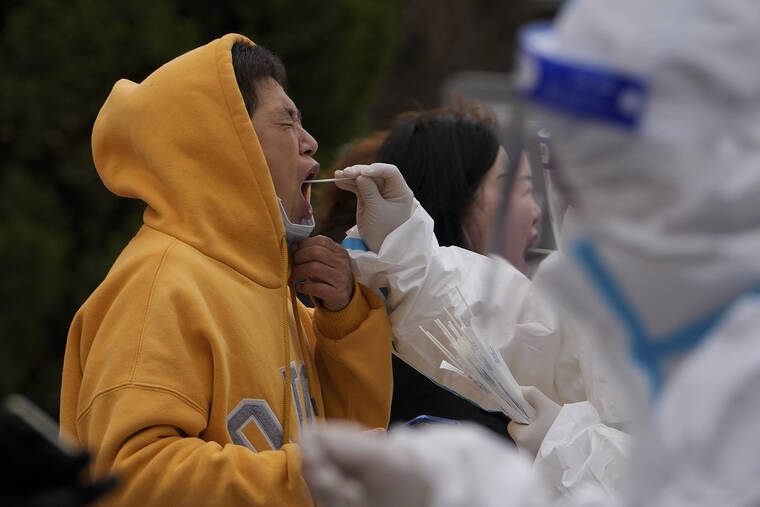Shanghai to allow parents to stay with COVID-infected kids
BEIJING — Following a public uproar, Shanghai will allow parents to stay with children infected with COVID-19 as China’s largest city sees another jump in cases.
A top city health commission inspector on Wednesday said parents who “fully comprehend the health risks” and sign an agreement will be permitted to accompany their children in monitoring facilities.
However, the parents must wear masks, eat separately, avoid sharing personal items and “strictly follow” all aspects of the management system, Wu Ganyu told reporters.
News that parents were being separated from their infected children sparked a wave of protest online, further fueled by photos showing several children held in each cot and no parents in sight.
Shanghai remains under complete lockdown to fight China’s latest outbreak, now well into the second week of what originally was publicized as a two-stage measure lasting just eight days. Officials say they will decide on further measures after analyzing the results of tests on more than 25 million city residents.
Shanghai on Wednesday reported another 17,077 cases detected over the previous day, all but 311 of them people who showed no symptoms. The city requires all those who test positive but are asymptomatic to be held in designated locations for observation, along with their close contacts.
The latest figures bring Shanghai’s total cases to around 90,000 in the latest wave of infections that began last month. No deaths have been ascribed to the outbreak driven by the omicron BA.2 variant, which is much more infectious but also less lethal than the previous delta strain.
While China’s vaccination rate hovers around 90%, its domestically produced inactivated virus vaccines are seen as weaker than the mRNA vaccines such as those produced by Pfizer-BioNTech and Moderna that are used abroad, as well as in the Chinese territories of Hong Kong and Macao. Vaccination rates among the elderly are also much lower than the population at large, with only around half of those over 80 fully vaccinated.
Meanwhile, complaints have arisen in Shanghai over difficulties obtaining food and daily necessities, and shortages of medical workers, volunteers and beds in isolation wards where tens of thousands are being kept for observation.
Beijing is also tightening measures after 11 cases were detected in the Chinese capital in recent days.
Authorities closed down a shopping and office center in the busy Wangjing district and are requiring those arriving in the city to report to their place of work or residence within 12 hours and undergo a COVID-19 test within 72 hours. They must undergo another test within 48 hours of returning to their place of work.
Despite growing public frustration and concerns about the economic effects, China says it is sticking to its hardline “zero-tolerance” approach mandating lockdowns, mass testing and the compulsory isolation of all suspected cases and close contacts.

